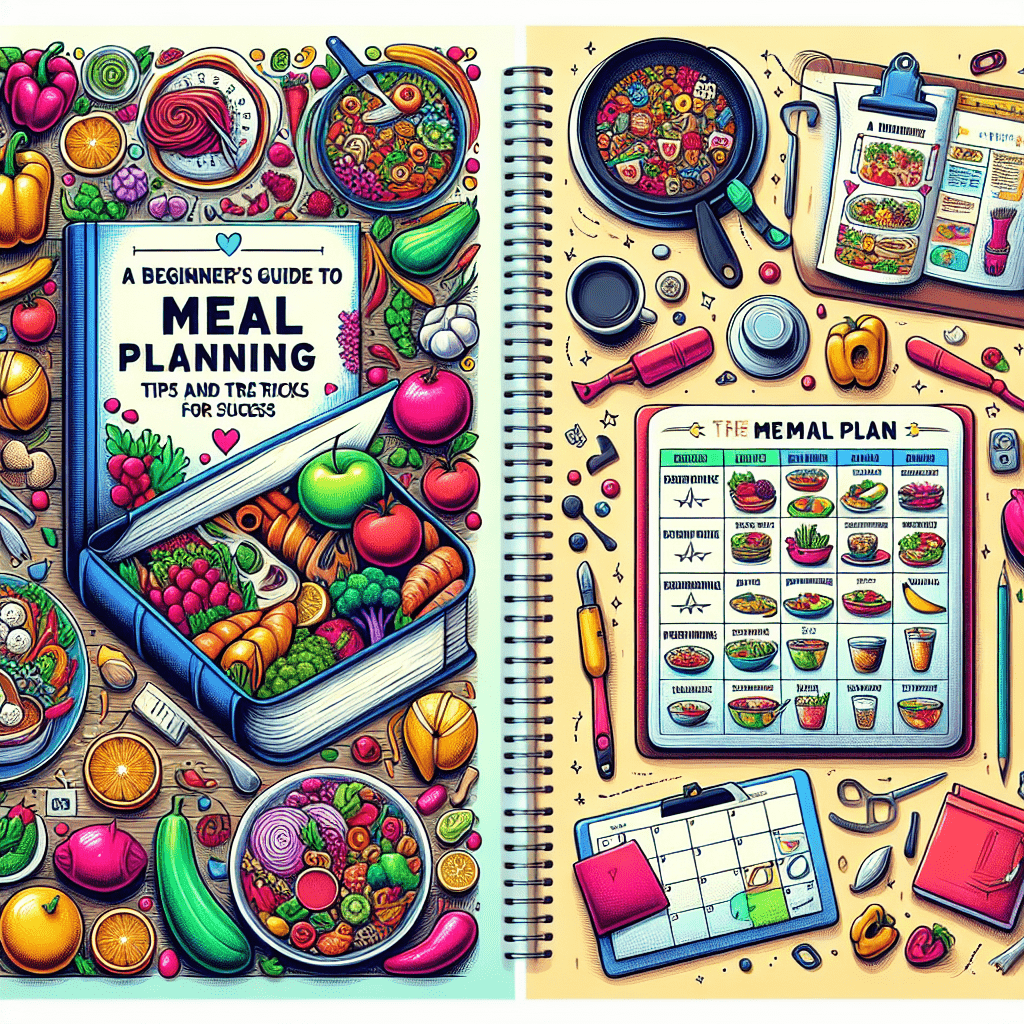[ad_1]
### A Beginner’s Guide to Meal Planning: Tips and Tricks for Success
Meal planning might seem like a daunting task, especially for beginners. The idea of deciding in advance what you’re going to eat for the entire week can be overwhelming. However, with a little bit of guidance and some practical tips, you can turn meal planning into an enjoyable routine that saves time, money, and ensures you eat healthier. Here’s how to get started.
#### Understand Your Why
Start by understanding why you want to meal plan. Is it to save money, reduce food waste, eat healthier, or perhaps to eliminate the stress of deciding what to cook every day? Your goal will shape your meal planning process, making it more focused and easier to stick to.
#### Inventory Check
Take stock of what you already have in your pantry, fridge, and freezer. This can help you avoid buying more of what you don’t need and inspire meals based on what you already have.
#### Decide on a Planning Day
Choose a day of the week to sit down and plan your meals. This could be a quiet Sunday afternoon or any day that works best for you. Make it a consistent part of your weekly routine.
#### Keep It Simple
As a beginner, it’s okay to start small. Plan for just a few days or the weekdays. You don’t have to create gourmet meals each night. Simple, nutritious meals are just as effective and often easier to prepare.
#### Get Inspired
Look for recipe ideas in cookbooks, food blogs, apps, or social media. Save or bookmark recipes that catch your eye and match your cooking skill level. Think about the variety in terms of protein, vegetables, and grains to ensure a balanced diet.
#### Create a Meal Plan Template
A template can be as simple as a spreadsheet or a piece of paper where you write down what you plan to eat for each meal. Include columns for breakfast, lunch, dinner, and snacks if necessary.
#### Make a Shopping List
Based on your meal plan, create a shopping list. Group items by category (produce, dairy, meat, etc.) to make your grocery shopping more efficient. Stick to your list to avoid impulse buys that don’t fit into your plan.
#### Take Advantage of Batch Cooking and Leftovers
Consider preparing larger quantities of certain meals that can be eaten over several days or frozen for later. This saves time and effort in the kitchen. Be creative with leftovers to prevent boredom and reduce waste.
#### Flexibility Is Key
Life happens. There will be days when you don’t feel like eating what you planned or something unexpected comes up. Be flexible and willing to swap meals around as needed. Having a few quick and easy backup options can help on those days.
#### Evaluate and Adjust
At the end of each week, take a few minutes to reflect on what worked and what didn’t. Adjust your plan and strategies as needed. Meal planning is a skill that will improve over time with practice.
### FAQs
**Q: How do I start meal planning if I’m not good at cooking?**
A: Focus on simple recipes that require minimal cooking skills. There are plenty of resources online for beginner cooks. Cooking is a skill that improves with practice, so start simple and gradually try more complex recipes as you become more comfortable.
**Q: What should I do if I plan a meal but then don’t feel like eating it?**
A: It’s important to allow for flexibility in your meal plan. If you don’t feel like eating a planned meal, swap it with another meal from later in the week or opt for a simple backup option. The goal is to avoid wasting food, not to stick rigidly to the plan.
**Q: How can I make meal planning more affordable?**
A: To keep meal planning budget-friendly, use ingredients you already have, look for sales and discounts, buy in bulk when it makes sense, and plan meals around cheaper, yet nutritious, ingredients like beans, rice, and seasonal vegetables.
**Q: Can meal planning help me lose weight?**
A: Yes, meal planning can be an effective tool for weight loss. It allows you to control portions, ensure a balanced diet, and avoid impulsive eating decisions that might lead to consuming unhealthy foods. Incorporate a variety of fruits, vegetables, lean proteins, and whole grains into your plan.
**Q: How much time does meal planning take?**
A: Initially, meal planning can take a bit of time as you get used to the process, but many find that it eventually saves time throughout the week. On average, setting aside 1-2 hours each week for meal planning and grocery shopping should suffice.
By following these steps and tips, meal planning can transform from a dreaded task to an empowering routine that enhances your lifestyle. Whether you’re aiming to save money, eat healthier, or simply make your life a bit easier, mastering the art of meal planning is a worthy endeavor that pays off in countless ways.
[ad_2]

Leave a Reply